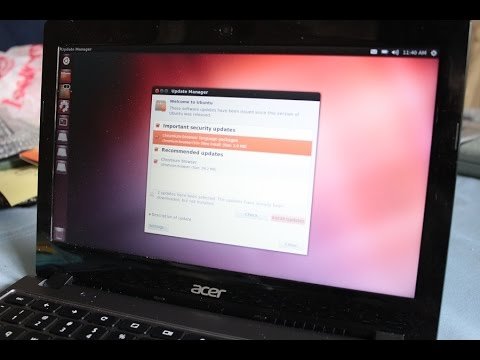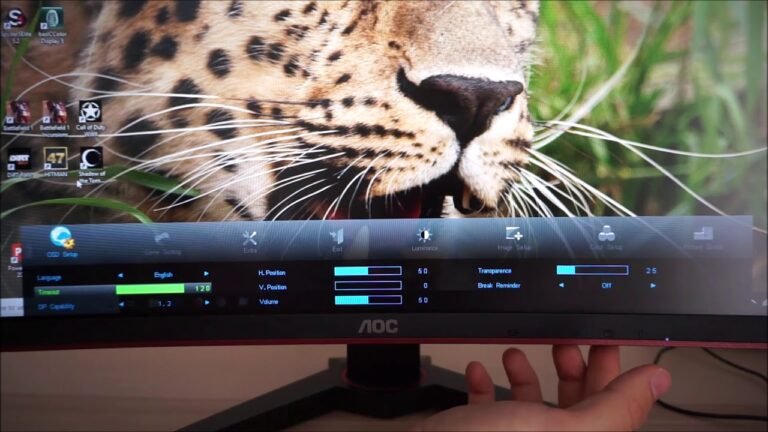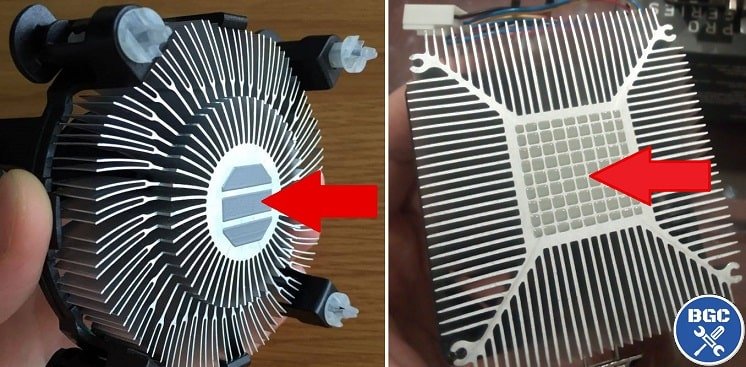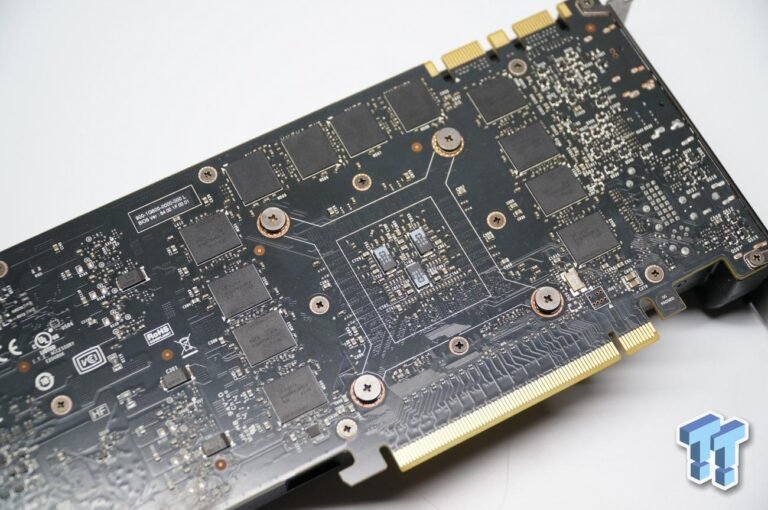Can Ghz Be Upgraded
No, the GHz cannot be upgraded because it is a hardware component. The only way to change the GHz is to replace the CPU with a new one that has a higher clock speed.
It’s a common question asked by computer users: can GHz be upgraded? The answer, unfortunately, is no. GHz is a measure of the clock speed of a processor, and is determined by the hardware itself.
It cannot be changed or increased through any software tweaks. So if you’re stuck with a slow processor, your only option is to upgrade to a new one.
How to Increase Ghz on Laptop Windows 10
If you want to increase the Ghz on your laptop, there are a few things that you can try. First, you can check for BIOS updates. Many times, these updates will include new Ghz settings that you can use.
If there are no BIOS updates available, you may be able to increase the Ghz by overclocking the CPU. However, this is not recommended for beginners as it can be very risky. Overclocking can void your warranty and damage your hardware if not done correctly.
If you’re comfortable with taking some risks, here’s a quick guide on how to overclock your CPU:
1. Enter your BIOS settings by pressing F2 or DEL during startup.
2. Find the “CPU Settings” or “Overclock” menu and select it.
3. Find the setting called “CPU Multiplier” or “CPU Frequency.” This is usually set to x10 by default, meaning that if your Ghz is 2200Mhz, it would be displayed as 22×10=2200Mhz in this setting. Change this number to 11x or 12x depending on how much of an increase you want (for example, 12x2200Mhz=26400Mhz).
Keep in mind that increasing this number too high may cause instability and crashes. It’s generally best to stay below 5% of the maximum turbo boost frequency listed in Intel CPUs (for example, 3GHz = 3100MHz so don’t go higher than 155MHz). For AMD CPUs it’s best not to exceed 10% above stock frequencies.
So if your CPU has a base clock speed of 3GHz don’t go higher than 3300MHz) . 4 GHz =4100 MHz so do not exceed 410 MHz)
How to Increase Ghz on Laptop Windows 11
If you want to increase the Ghz on your laptop running Windows 11, there are a few things you can do. First, check to see if your computer is running the most recent version of Windows. If not, update it.
Second, make sure that your computer’s processor is running at full speed. You can do this by opening the Control Panel and going to System > Processor Speed. If it isn’t set to 100%, increase it until it is.
Finally, close any programs that you aren’t using and restart your computer. This will free up resources and allow your processor to run at full speed more often.
How to Increase Ghz on Laptop Windows 7
If you want to increase the Ghz on your laptop, there are a few things that you can do. First, you can try overclocking your CPU. This involves changing the settings in your BIOS to make your CPU run faster than its default speed.
You can also try installing a program like SetFSB which will let you change the Front Side Bus speed on your laptop. Increasing the FSB will automatically increase the Ghz of your CPU.
Another thing that you can do is to install a program like CPU-Z which will show you all of the information about your laptop’s CPU, including its current speed and what its maximum speed is.
If you see that your CPU is running below its maximum speed, then you can try increasing the voltage or frequency to get it running at its full potential. Just be careful not to overclock your CPU too much, as this could damage it.
How to Increase Processor Speed Ghz
If you want to increase the processor speed on your computer, there are a few things you can do. First, you can try overclocking the processor. This involves changing the settings on the processor so that it runs faster than its normal speed.
However, this can be risky and may damage your processor if not done correctly. If you’re not comfortable doing this yourself, you can take your computer to a professional who specializes in overclocking.
Another way to increase processor speed is by upgrading to a faster model.
This is usually more expensive than overclocking, but it will give you a guaranteed increase in speed. You’ll need to make sure that your other components are compatible with the new processor before making the upgrade.
If you’re looking for a quick and easy way to boost your processor speed, try adding more RAM.
This will help your computer run more smoothly and quickly overall. Just be sure to get compatible RAM for your particular motherboard.
Finally, keep your computer clean and free of dust build-up.
Dust can impede cooling and cause processors to overheat and slow down. Use compressed air or a vacuum cleaner attachment to remove dust from around your computer’s case weekly or monthly.
How to Increase Processor Speed Ghz in Android
If you want to increase the processor speed on your Android device, there are a few things you can do. First, you can try overclocking the processor. This involves changing the settings on the processor so that it runs at a higher speed than it is designed for.
You can also try undervolting the processor. This means reducing the voltage that is supplied to the processor, which can also help to increase its speed. Finally, you can try using a custom kernel that has been optimized for performance.

Credit: www.amazon.com
How Do I Increase My Ghz Processor Speed?
There are a few ways to increase the GHz processor speed on your computer. One way is to overclocking the CPU. This is done by changing the settings in the BIOS to make the CPU run at a higher frequency.
It is important to note that not all CPUs can be overclocked and that overclocking voids any warranties on the CPU. Overclocking also increases the heat output of the CPU, so it is important to have adequate cooling for the CPU when overclocking.
Another way to increase GHz processor speed is by upgrading to a faster CPU.
This will require opening up your computer and replacing the old CPU with a new one. Again, it is important to make sure that your motherboard supports the new CPU before making this upgrade. Upgrading to a faster hard drive can also help increase processor speed as well as overall system performance.
How Can I Improve My 1.60 Ghz?
There is no easy or guaranteed way to increase the speed of your computer’s processor. However, there are a few potential methods you can try that may help improve your 1.60 GHz speed slightly.
One thing you can do is to ensure that your computer has adequate cooling.
If the processor gets too hot, it will throttle itself down to avoid damage. Make sure all the fans in your computer are working properly and clean out any dust buildup that could be impeding airflow. Additionally, you can try overclocking your processor if it is not already being overclocked.
This involves configuring settings in the BIOS to make the processor run at a higher frequency than its default speed. However, overclocking comes with risks and can potentially damage your hardware if done incorrectly, so be sure to research thoroughly before attempting it.
Another potential method for improving processor speed is by using performance-enhancing software tools.
These programs can optimize your system settings and help improve overall performance, including processor speed. Some examples of these tools include PC Booster and Advanced SystemCare Pro (links below). Keep in mind though that results will vary depending on your individual setup and configuration.
Ultimately, there is no guaranteed way to increase the speed of your 1.60 GHz processor beyond its factory default setting without taking risks or spending money on upgrading hardware components. But by following some of the tips above, you may be able to eke out a small boost in performance from what you currently have.
What is the Max Cpu Ghz?
The max CPU GHz is the highest frequency that a processor can run at. This is also known as the clock speed. The clock speed is measured in MHz (megahertz) or GHz (gigahertz).
A 1GHz processor can execute one billion instructions per second.
How Do I Upgrade My Processor Frequency?
If you’re looking to upgrade your processor frequency, there are a few things you’ll need to take into account. First, you’ll need to identify what type of CPU socket is compatible with your motherboard. Second, you’ll need to make sure that the new CPU is compatible with your existing RAM.
Lastly, determine if your power supply can handle the increased power draw from a higher-frequency processor.
Once you’ve taken those factors into consideration, it’s simply a matter of purchasing a new CPU and installing it in your computer. If you’re not comfortable doing that yourself, any reputable computer shop should be able to do it for you.
Keep in mind that upgrading your processor frequency will likely also require a BIOS update; be sure to check for compatibility before proceeding.
Double your GHz on laptop(PC)
Conclusion
This blog post discusses whether or not ghz can be upgraded. The author provides information about how ghz works and what factors can affect its performance. Ultimately, the author concludes that while ghz can be upgraded, it may not provide the desired results.










